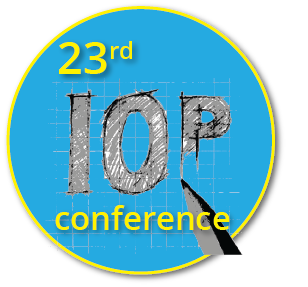The Asian Style: Reconceptualizing Asian immigrant parents’ educational involvement and their relationships with mainstream schools
Presentation by: Zhuo Sun
Session E | 11:05 – 11:25 | Room 207
Abstract:
Given the long-held educational belief that positive parent-school partnership optimizes students’ academic performance and behavioral outcomes (Crosnoe, 2010; Turney & Kao, 2009), this roundtable session addresses the inconsistency between the highly recognized strong education aspiration among Asian immigrant parents and their widely reported low involvement in children’s schools. While they engage less in visible involvement activities in school, they are found to focus more on systematic teaching of their children at home (Crosnoe, 2010; Huntsinger & Jose, 2009; Guo, 2007; Lee & Zhou, 2015; Li, 2002, 2006).
In this roundtable session, the brief presentation will be delivered under the theoretical perspectives of Epstein’s (1987, 1995) model of four major parental responsibilities in participating their children’s education and Crosnoe’s (2010) concept of visible/invisible parental involvement to examine the cultural patterns and beliefs of Asian immigrant parents’ school involvement in relation to Western mainstream norms.
By drawing on research evidence, this roundtable discussion aims to bridge the gap of this cross-cultural disparity in education. It encourages mainstream teachers to take both cultural and sociopolitical considerations to reconceptualize parental involvement, and extend this concept to the inclusion of Asian parents’ more invisible, home-based patterns of participation in children’s learning and education. It also delivers the message for mainstream educators and school teachers to develop cultural familiarity and cultural self-reflexivity in communicating with their Asian immigrant parents in order to yield concerted support for their children’s productive and healthy learning experience in both family and school domains.
References:
Crosnoe, R. (2010). Two-Generation Strategies and Involving Immigrant Parents in Children’s Education. Urban Institute (NJ1).
Epstein, J. L. (1987). Parent involvement: What research says to administrators. Education and Urban Society, 19(2), 119-136.
Epstein, J. L. (1995). School/family/community partnerships. Phi Delta Kappan, 76(9), 81-96.
Guo, Y. (2007). Multiple perspectives of Chinese immigrant parents and Canadian teachers on ESL learning in schools. Diaspora, Indigenous, and Minority Education, 1(1), 43–64. http://doi.org/10.1080/15595690709336600
Huntsinger, C. S., & Jose, P. E. (2009). Parental involvement in children’s schooling: Different meanings in different cultures. Early Childhood Research Quarterly, 24(4), 398–410. http://doi.org/10.1016/j.ecresq.2009.07.006
Kao, G. & Thompson, J. (2003). Racial and ethnic stratification in educational achievement and attainment. Annual Review of Sociology, 29, 417-442.
Lee, J., & Zhou, M. (2015). The Asian American achievement paradox. New York: Russell Sage Foundation.
Li, G. (2002). “East is East, West is West”? Home literacy, culture, and schooling. New York: Peter Lang.
Li, G. (2006). Culturally contested pedagogy: Battles of literacy and schooling between mainstream teachers and Asian immigrant parents. Albany, NY: SUNY Press.

